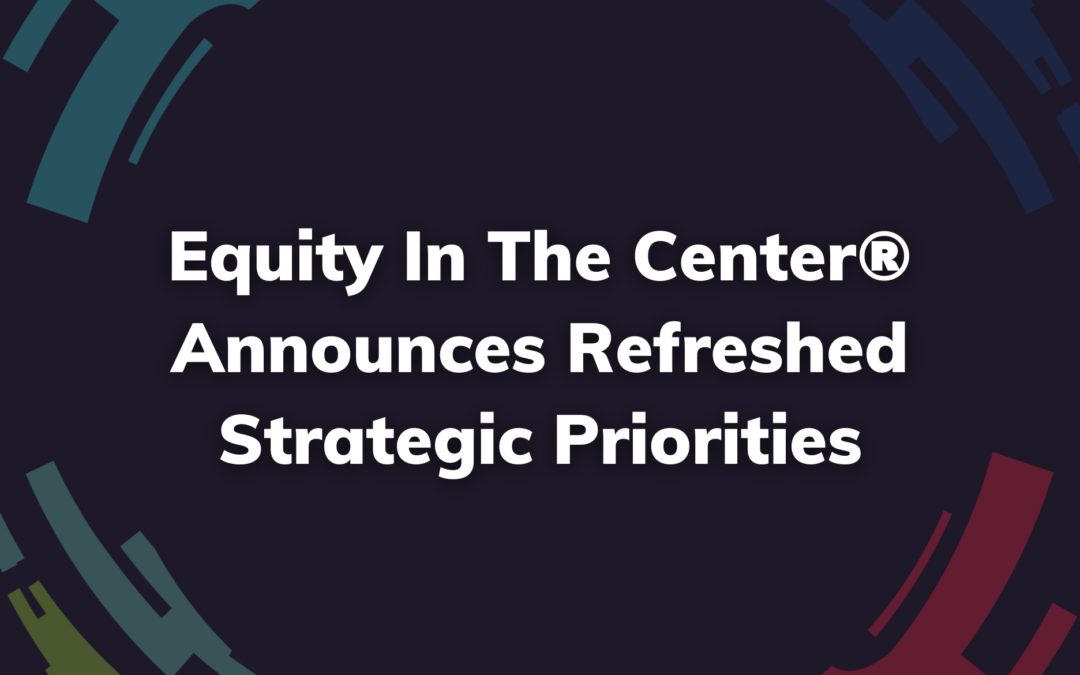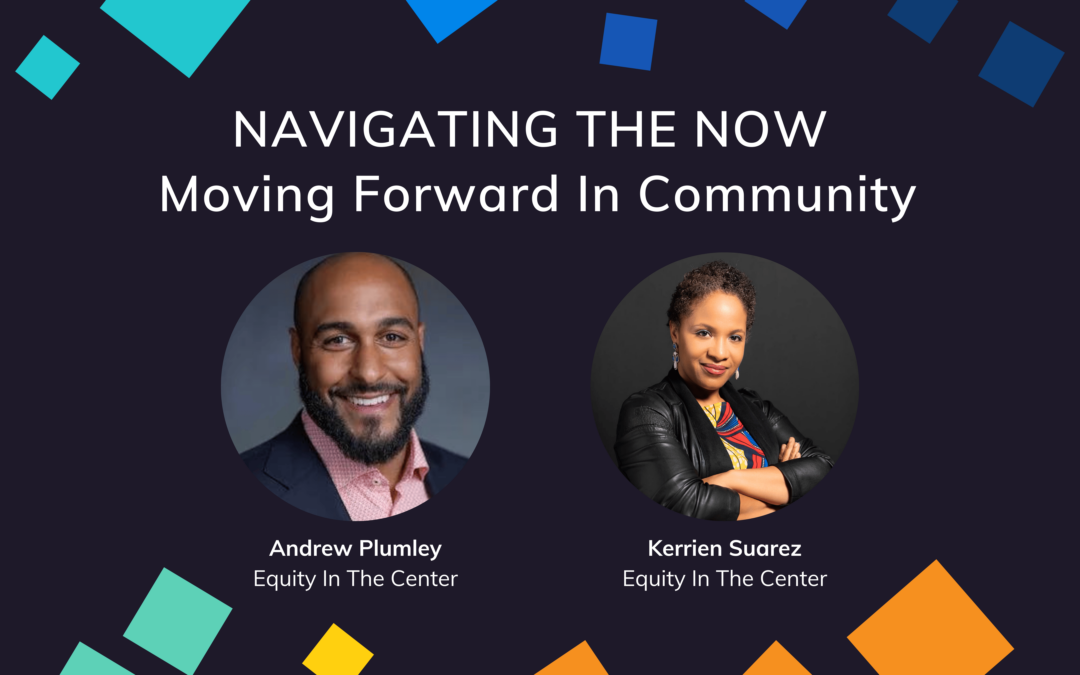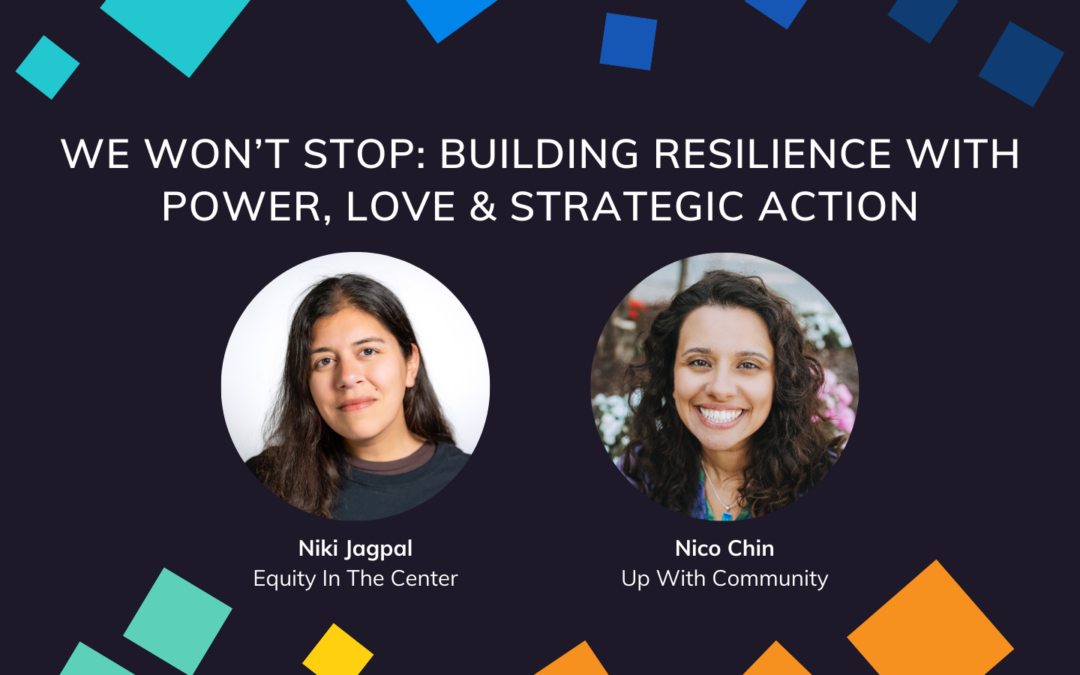By Kerrien Suarez with the support of Ericka Hines
This is the second in a series of recommendations designed to help nonprofit and philanthropic organizations engage consultants to build a Race Equity Culture. You can read the first post in the series here.
Leaders find the process of hiring a race equity consultant to be fraught with challenges. So many organizations make critical missteps in the process that Fakequity wrote a blog about how not to screw it up. The increasing number of training and capacity building options available, the complexity of assessing organizational readiness, the question of when and with whom to begin the work: Individually and collectively, these issues can lead to months (sometimes years) of delays. This leads to a type of “analysis paralysis” that practitioners recognize as a means of tactically avoiding beginning the work itself.
Building on themes from the “What Would an Equity Consultant Do?” panel at the 2018 Equity in the Center Summit (video can be found here: Part One, Part Two, Part Three), the following is a list of tools and resources that address key questions nonprofit and philanthropic leaders frequently ask before bringing on an equity consultant. They are designed to orient leaders to the process and demands of the work, and support organizations in identifying, retaining and successfully partnering with a race equity consultant. Many tools included below are indexed on the Racial Equity Tools website, a list of 1900+ resources curated by Center for Assessment and Policy Development, MP Associates and World Trust Educational Services.
Identify the skill or expertise your organization needs at this particular time. It will be different at the very beginning of this work (when you may need foundational training to develop a shared language on race) than one year into the work (when you may need a one to two year action plan with clear learning goals and tactical priorities) than three years into the work (when you may need to ensure that organizational behavior/beliefs and policies/practices are aligned across functions to maintain momentum in building a Race Equity Culture). The Denver Foundation tool referenced above can support organizations in outlining the specific consultant skills needed to achieve immediate project goals.
Understand there is no consultant who is the “perfect” fit for your organization. Perfection is an unrealistic goal, yet organizational culture (built on white dominant standards) prioritizes it. Organizations often get caught in a loop of searching for the “right” consultant and not finding them, which leaves the work at a stand-still. Engaging a firm, a team of independent consultants, or an individual consultant who pulls in colleagues with specific skills and experience for collaboration at key points, is worth considering. Each consultant will bring a set of race, gender, sexual orientation and class (among other) identities to the work, which moderates how they give feedback and facilitate discussions with individuals and groups during an engagement. For example, white team members are often best able to “hear” direct feedback on how microaggressions and white fragility show up in their interactions with colleagues from a consultant who also identifies as white. Similarly, people of color are often more comfortable expressing (and publicly processing) experiences of race-based trauma inside and outside of the organization when the dialogue is facilitated by an external consultant who is also of color. Also, many organizations engage a consultant to lead their race equity initiatives and hire coaches to help managers and senior leaders process its personal, interpersonal and institutional implications for their daily work. Consider it a red flag if a candidate is not able to articulate how the multiple identities they hold play out in their work as a consultant/facilitator, or if they say that, as an individual, they have “everything you need” to successfully accomplish the challenging, nuanced race equity work before your organization.
Pay attention to white culture and privilege and how it shows up both internally and externally during a race equity process. Hire a consultant who can call out and explicitly mitigate these dynamics, which often comprise a missing link in the process. In addition to establishing intentional group norms that promote explicit reflection on white culture and privilege, and how they manifest inside and outside of organizations, a skilled consultant will utilize caucusing by racial identity to surface implicit dynamics around white culture, privilege and whiteness. Caucusing can be an effective strategy for surfacing issues of white culture and privilege (as well as internalized and interpersonal racism) among white people and people of color. The Transforming Organizational Culture Assessment Tool specifically addresses white culture as part of an organization’s efforts to advance racial equity.
It is important to note the role that chief executive officers, 90% of whom are white according to a BoardSource study, play in establishing and enforcing white dominant standards within organizational culture. CEOs of color, many of whom have assimilated white dominant standards to ascend the professional ladder, play a similar role in upholding white dominant standards whether the organization is predominately people of color or not, which highlights the critical work senior leaders must do to interrogate how biased beliefs and behaviors operate at the personal, interpersonal and institutional levels.
Do an equity self-assessment. Before bringing on a consultant, complete (or at least review) one of the many self-assessments available to support organizations in developing a cross-functional picture of culture, policies and practices. These tools help organizations reflect on everything from staff and board diversity to processes for strategic and budgetary planning; support leaders in evaluating what skills and experience best align with their organization’s needs and goals; and assess an organization’s readiness (leadership commitment, budget, staffing, et al.) to successfully engage a consultant around specific goals. Consultants generally conduct an assessment during the first phase of a race equity engagement, but having some baseline data from an organization’s self-assessment positions them to more effectively prioritize areas of focus and make progress toward goals as they begin work. It is important to note that, as part of self-assessment, organizations should be mindful of who is involved in the process, creating space to elevate diverse perspectives within the organization, and ensuring that the voices of staff and leadership of color (at all levels) are centered.
This Race Matters assessment takes less than five minutes, and will help your organization understand whether it is taking the steps that are usually needed to achieve equitable results. CHANGE Philanthropy has a quiz that grantmaking organizations can use to assess where they are in their equity journey, and receive a set of curated resources to guide them in planning next steps. National Center for Responsive Philanthropy released a set of Power Moves tools to help grantmakers assess how power drives equity in their funding policies and process. And, Crossroads Anti-Racism Organizing and Training has the Continuum on Becoming an Anti-Racist Multicultural Organization, which outlines a range of characteristics that define how actively inclusive and anti-racist an organization is.
Before bringing on a consultant, or while evaluating one, it can also be helpful to review a Race Equity Impact Assessment (REIA) tool to gain insight into how your organization’s policies and practices for making decisions, launching programs, et al. will shift when applying a race equity lense in the future (here is one developed by Race Forward). While the race equity self-assessments in the previous paragraph provide insight into an organization’s current cross-functional policies and practices (and performance) on equity (a “state of the house” so to speak), a REIA is a systemic examination of how a proposed action or decision (budgetary, programmatic or operational, et al.) will impact different racial or ethnic groups in the future. If you are not familiar with the REIA process, and aren’t sure where to begin or how to apply it, check out this Pocket Guide for a brief introduction. As part of a race equity engagement, a consultant will support an organization in determining how to thread the key questions in a REIA into cross-functional policies and practices (and organizational culture overall). Race Forward’s one-pager on its Choice Points approach includes helpful questions on how to apply a race equity lense in organizational decision-making. For additional detail, see the REIA tool and user guide that SAGE created as part of their work to build a Race Equity Culture. This spring, Equity in the Center will release a video case study in which CEO Michael Adams shares insights into the years-long process that yielded this tool.
Disaggregate data by race. Where possible, disaggregate staff engagement data by level, compensation, promotion, retention, performance and professional development and race to identify disparities. This will support leadership and a consultant in identifying priority areas for an engagement’s focus by highlighting gaps in culture, practice and policy. Building Movement Project’s Race to Lead series highlights the racial leadership gap in nonprofit organizations. Disaggregating data by race allows leaders to see if and where the racial leadership is manifest inside their organization. Data for external programs should also be disaggregated to see where gaps and opportunities for improvement exist in partnerships with communities and other stakeholders. Annie E. Casey Foundation has developed extensive resources that operationalize equity with a focus on cross-functional disaggregation of internal and external data. Ford Foundation recently published a Center for Effective Philanthropy blog on how its approach to data grantee collection has changed, and how that connects to their growing internal capacity to gather, analyze and track diversity, inclusion and equity data.
Building a Race Equity Culture is a years-long process of intentional, focused work that is deeply challenging and nuanced, both in theory (“making the case” for it) and execution (the “how” of doing it) for organizations. It is work on which organizations will need to maintain the sustained, intentional focus traditionally dedicated to strategy and mission. The support of expert facilitators and consultants is a critical element of doing the work in a manner that yields meaningful, measurable and sustainable transformational change. Equity in the Center’s research found that this change is not catalyzed, and is not sustained over years and, in some cases, decades, in the absence of consultant support at pivotal points in an organization’s journey. Demos recently published a detailed case study of their race equity work, which includes excellent context on how they leveraged an external consultant to build capacity and transform the organization. Lucy Mayo, who led Demos’ race equity work in her role as senior vice president of organizational development, talked about its transformation during the “View from the C-Suite: Moving from Awake to Woke to Work in National Nonprofit Organizations” panel at the 2018 EiC Summit (View the video here: Part One and Part Two). This spring, Equity in the Center will release a video case study in which Lucy shares insights from Demos’ journey.
As you plan next steps for your organization’s work, following are helpful resources for connecting with consultants:
The Association of Black Foundation Executives (ABFE) connects funders to consultants who are values-aligned with their framework for Responsive Philanthropy in Black Communities.
The National Network of Consultants to Grantmakers maintains an online Directory of Philanthropy Consultants, a searchable database of vetted consultants with range of expertise, including racial equity, diversity and cultural competency.
The National Center for Responsive Philanthropy has an advisory cohort of independent consultants with experience implementing its “Power Moves: Your essential philanthropy assessment guide for equity and justice” set of tools.
Members of the United Philanthropy Forum can access an inventory of racial equity speakers, facilitators, and trainers here.
The Philanthropic Initiative for Race Equity provides technical assistance to grantmakers, and developed a list of racial justice organizations and resources.
Equity in the Center is partnering with Catalyst:Ed to expand their existing DEI Expert Hub, an online platform that connects leaders with consultant experts who can assess, design, plan and implement diversity, equity and inclusion (DEI) and race equity initiatives, to serve a broader range of nonprofit and philanthropic leaders. Click here to learn more about the initiative, and stay tuned for a late March announcement about the admission of new race equity practitioners to the Hub!
Equity in the Center thanks its Resource Mapping Working Group, co-chaired by CHANGE Philanthropy’s Carly Hare and Building Movement Project’s Sean Thomas-Breitfeld, for its support in curating Woke@Work. We are grateful to Leniece Flowers Brissett, Maggie Potapchuk, Carly Hare, Yolanda Caldera-Durant, Kelly Opot, Caitlin Duffy and Monisha Kapila for their feedback and resource recommendations. Part three of this series will be published in spring 2019. Until then, stay connected to Equity in the Center via wokeatwork.org, Twitter, Facebook and Instagram.




